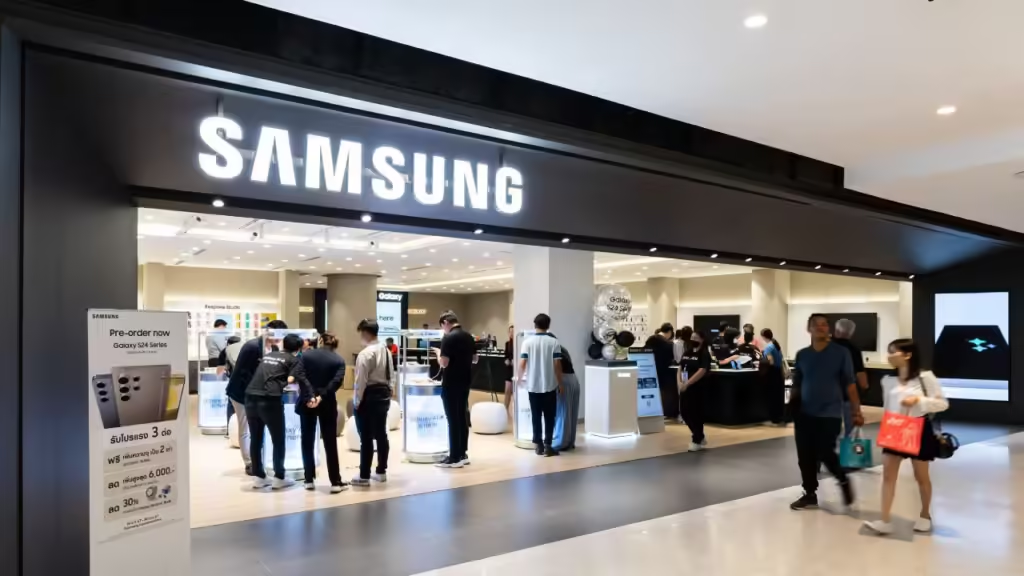The strike in India by Samsung workers closed a South Korean electronics giant’s plant, driving attention to a politically backed worker group that quietly mobilized company employees and plans now to expand its efforts in India’s electronics sector.
The protests by workers of the Samsung electronics giant over low wages, now in their fifth day, cast a shadow over Indian Prime Minister Narendra Modi’s plan to court foreign investors to “Make in India” and triple electronics production to $500 billion in six years.
From Foxconn to Micron, the list of firms drawn in by Modi’s more business-friendly policies and cheap labor under a decade-long rule is long and growing, especially as foreign manufacturing giants think about diversifying their supply chains.
On Friday hundreds of protesting workers wore blue-colored Samsung shirts and sat inside makeshift tents near the home appliances plant in the southern state of Tamil Nadu, sporting red caps with the acronym CITU.
Backed by India’s hardest-left political party, with 6.6 million worker members, the CITU asks for pro-worker policies though it has typically focused more on the auto industry and companies like Hyundai.
To this end, although employees at companies like Samsung may unionize autonomously, an amalgamation of forces with organizations such as CITU, which was established way back in 1970, is considered by a few workers to be a potential route to garner greater national support for the cause and have their voice better heard among companies.
With the Samsung strike, CITU now plans to make inroads into the electronics manufacturing sector that is growing at a rapid pace but where companies “are not doing wage revisions properly,” said S Kannan.
This is the scale of strike in the Indian electronics industry that impacts production. The last big incidents were worker disturbances at the iPhone factories of suppliers Wistron and Foxconn in 2021, over unpaid wages and food poisoning, respectively.
CITU is set to intensify its battle for better workers’ rights at Apple supplier Flex and electronics firm Sanmina, where it has been negotiating with the management on union recognition, and better wages, among others, Kannan said. “The company upholds the highest global standards in its labor practice and believes in a respectful and collaborative environment,” Flex said in its statement.
Reuters questions have elicited no response from the prime minister’s office, the federal IT ministry, the Tamil Nadu labor ministry, and Sanmina.
The Samsung strike is one of the most critical industrial disturbances to have halted production at a foreign multinational unit. The plant generates approximately one-third of its annual $12 billion revenue in India.
While the workers protest, Tamil Nadu Chief Minister M.K. Stalin has been on a U.S. tour since late August and met with companies such as Nike and Ford.
While Samsung spokespeople say that its management is having talks with unions about wages and rollbacks for its employees, in the case of the company, CITU quietly sent a letter in July to its management, as seen by Reuters – asking it to drive through higher wages for workers that it said were forced into a “dire situation”.
When the firm refused, CITU supported workers to stage a strike this week, which is also turning out to be a test for companies the group claims pay low wages to poor workers.
Samsung workers receive an average of 25,000 rupees ($300) a month, according to CITU. Now they demand an increase of 36,000 rupees ($430) in three years, claims CITU. A worker outside the plant said, “I joined Samsung ten years back. I take home only 23,000 rupees a month. But with these living costs sky-high, it is laborious.”.
The number of strikes may be minimized if the government provides a platform for international companies to adhere to labor laws along with the rights of association and collective bargaining, said K. R. Shyam Sundar, an economist who writes on labor reforms in India.
Samsung stated in a statement on Friday that it had entered into talks with workers at its Chennai factory to “settle all issues at the earliest.”

